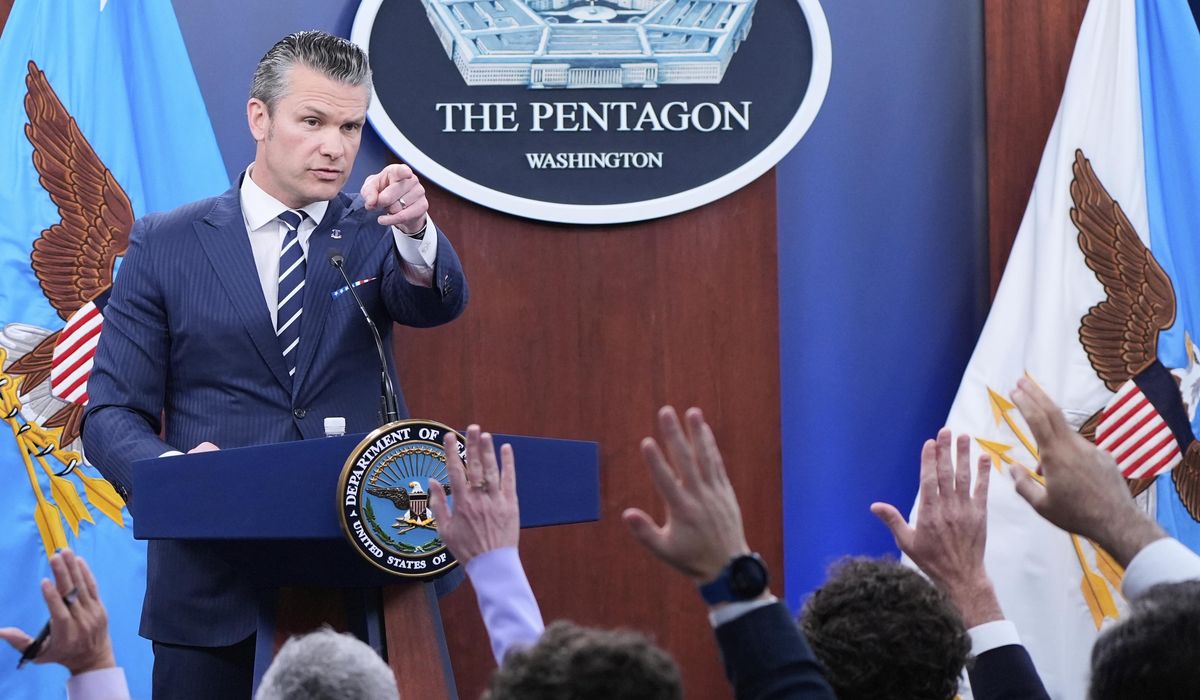


Don’t miss the full story from our staff writers, whose reportage is the basis of this article.
The Pentagon has implemented sweeping new restrictions on journalists that require reporters to sign pledges not to release any “unauthorized” information, even if unclassified, or risk losing access to Pentagon grounds.
These changes represent the latest move by Defense Secretary Pete Hegseth to restore what he calls the “warrior ethos” by eliminating leftist policies and ending woke initiatives within the military.
The 17-page policy proposal fundamentally reshapes how journalists interact with the Defense Department, restricting physical movement within the Pentagon and requiring government approval for all news coverage.
Media law scholars and analysts argue these measures constitute a clear First Amendment violation that may not survive legal scrutiny.
The most controversial provision requires reporters to promise they won’t release information not authorized for release, essentially giving the government veto power over military coverage. This extends beyond classified material to include unclassified information, representing an unprecedented level of government control over press coverage.
The Pentagon frames the directive as necessary to prevent information leaks and address national security concerns. Officials have also ended the decades-old tradition of allowing journalists access throughout much of the Pentagon building. Mr. Hegseth defended the policy on social media, stating “The ’press’ does not run the Pentagon — the people do. The press is no longer allowed to roam the halls of a secure facility.”
The policy builds on earlier restrictions implemented in May that limited access to areas around Mr. Hegseth’s offices and key officials. The new rules tie these physical restrictions to reporters’ credentials, meaning violations could result in credential revocation.
Major news outlets have strongly suggested legal challenges are forthcoming. The Pentagon Press Association is reviewing the directive, while several publications, including The Washington Times, have announced they will not sign the new policy.
Former military public affairs officials criticize the approach as misguided. Retired Rear Admiral Tom Jurkowsky, who led the Navy’s public affairs program for 31 years, said no reporter would agree to these terms and emphasized that independent reporting serves the public interest.
Free speech advocates argue the policy constitutes prior restraint, which the Supreme Court rejected even in national security cases like the Pentagon Papers. Seth Stern from the Freedom of the Press Foundation noted that the First Amendment specifically protects the press’s right to publish information the government doesn’t want released.
Even President Trump appeared to distance himself from the policy, recently stating “Nothing stops reporters.” Legal experts believe courts would strike down the directive on multiple constitutional grounds.
This article is written with the assistance of generative artificial intelligence based solely on Washington Times original reporting and wire services. For more information, please read our AI policy or contact Ann Wog, Managing Editor for Digital, at awog@washingtontimes.com
The Washington Times AI Ethics Newsroom Committee can be reached at aispotlight@washingtontimes.com.
